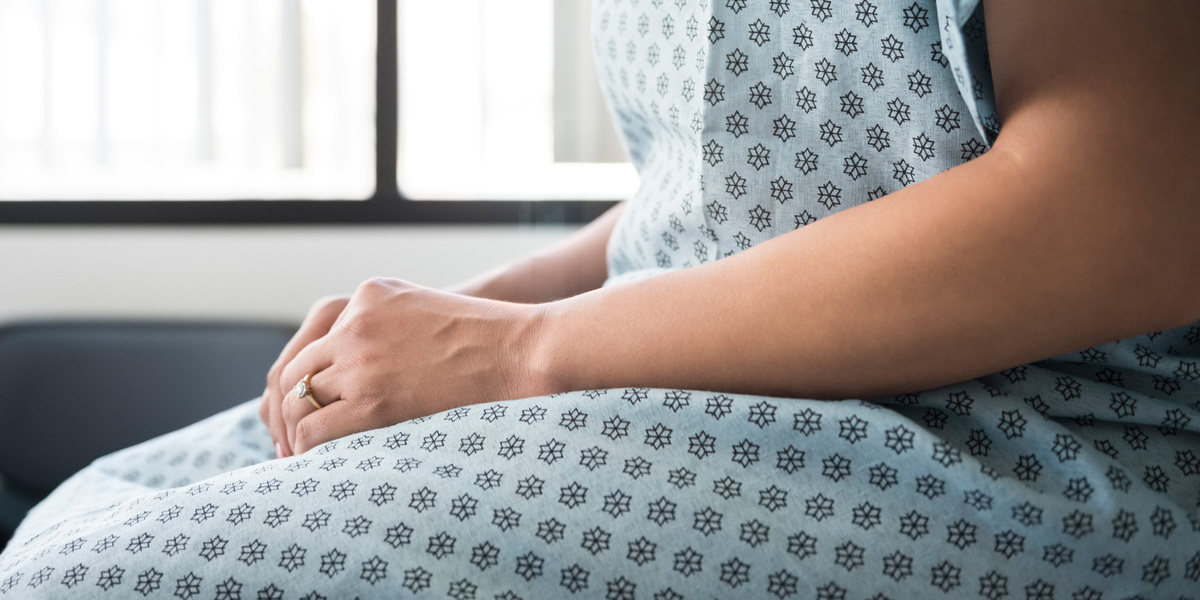Loyola Medicine Asylum Clinic Opens at MacNeal to Provide Forensic Evaluations for Asylum Seekers
May 1, 2022
Categories: Loyola Medicine, MacNeal Hospital
Tags: Loyola Medicine, MacNeal Hospital
MAYWOOD, IL – Loyola Medicine recently opened the Loyola Medicine Asylum Clinic at MacNeal Hospital. Founded by Yessenia Castro-Caballero, MD, FAAP, and Amy Blair, MD, FAAFP, the clinic provides evidence-based medical examinations for asylum seekers. The clinic serves clients who are seeking humanitarian protection after experiencing trauma, including human trafficking, torture, anti-LGBTQ violence, religious persecution, female genital mutilation, sexual and gender-based violence and persecution by gangs. A survey published in the Journal of Immigrant and Minor Health found that 89% of asylum seekers who received forensic medical evaluations were granted asylum, compared with 37.5% among those whose evidence was not documented by a medical expert.
A member of the Refugee and Immigrant Child Health Initiative of the American Academy of Pediatrics, Dr. Castro-Caballero worked as a pediatrician on Chicago's southwest side where she saw immigrant families torn apart. "We wanted to find ways in which we can help and this was one simple way where we could help individuals have a chance at staying in the United States."
Dr. Castro-Caballero says the examinations generally take three hours but can last several days. "They tell you the story of how they came to the United States and the persecution they faced. Then, in the medical part, they show us their scars and we document those scars." After the exam, the doctors document their findings in a signed affidavit.
The clinic is staffed by volunteer doctors and residents who have been trained to perform forensic medical evaluations. Dr. Amy Blair has spent 15 years volunteering as a forensic evaluator. She's seen the number of asylum seekers grow exponentially as immigrants seek refuge from troubled regions around the globe. Now she trains other physicians through the Midwest Human Rights Consortium. "I want to share my experience to help empower more providers to be comfortable doing these exams."
Charles Bareis, MD, chief medical officer at MacNeal Hospital, said opening the clinic was the right thing to do. "40 to 50% of our patients at MacNeal are Spanish speaking and many are undocumented." He praised Dr. Castro-Cabellero and Dr. Blair for their work at the clinic: "they are living the mission of Loyola Medicine and Trinity Health by serving the most vulnerable in our community."
Richard Freeman, MD, MBA, FACS, regional chief clinical officer at Loyola Medicine, added, "we are proud of the doctors who have stepped up to volunteer their time not only to provide these evaluations but to train the next generation of physicians to provide this critical service."
For information about scheduling an evaluation with the Loyola Medicine Asylum Clinic at MacNeal Hospital, contact the Midwest Human Rights Consortium.
About Loyola Medicine
Loyola Medicine, a member of Trinity Health, is a nationally ranked academic, quaternary care system based in Chicago's western suburbs. The three-hospital system includes Loyola University Medical Center (LUMC), Gottlieb Memorial Hospital, MacNeal Hospital, as well as convenient locations offering primary care, specialty care and immediate care services from nearly 2,000 physicians throughout Cook, Will and DuPage counties. LUMC is a 547-licensed-bed hospital in Maywood that includes the William G. and Mary A. Ryan Center for Heart & Vascular Medicine, the Cardinal Bernardin Cancer Center, the John L. Keeley, MD, Emergency Department, a Level 1 trauma center, Illinois's largest burn center, the Nancy W. Knowles Orthopaedic Institute, a certified comprehensive stroke center, transplant center and a children’s hospital. Having delivered compassionate care for over 50 years, Loyola also trains the next generation of caregivers through its academic affiliation with Loyola University Chicago’s Stritch School of Medicine and Marcella Niehoff School of Nursing.
Established in 1961, Gottlieb Memorial Hospital is a 235-licensed-bed community hospital in Melrose Park that includes the Judd A. Weinberg Emergency Department, the Loyola Center for Metabolic Surgery and Bariatric Care, Loyola Cancer Care & Research at the Marjorie G. Weinberg Cancer Center, acute rehabilitation, a transitional care center, childcare center and fitness center. Founded in 1919, MacNeal Hospital is a 349-licensed-bed teaching hospital in Berwyn with advanced medical, surgical and psychiatric services and a 68-bed behavioral health program.
For more information, visit loyolamedicine.org. You can also follow Loyola Medicine on LinkedIn, Facebook, Instagram or X (formerly known as Twitter).
About Trinity Health
Trinity Health is one of the largest not-for-profit, faith-based health care systems in the nation. It is a family of 127,000 colleagues and more than 38,300 physicians and clinicians caring for diverse communities across 26 states. Nationally recognized for care and experience, the Trinity Health system includes 93 hospitals, 107 continuing care locations, the second largest PACE program in the country, 142 urgent care locations and many other health and well-being services. In fiscal year 2024, the Livonia, Michigan-based health system invested $1.3 billion in its communities in the form of charity care and other community benefit programs. For more information, visit us at www.trinity-health.org, or follow us on LinkedIn, Facebook, and X (formerly known as Twitter).
